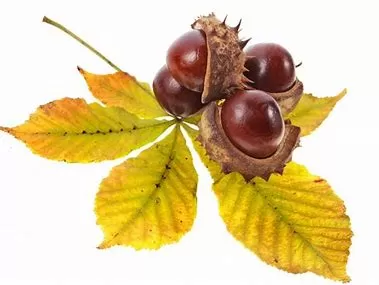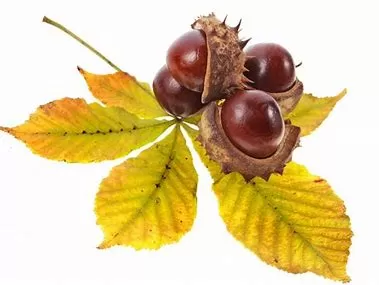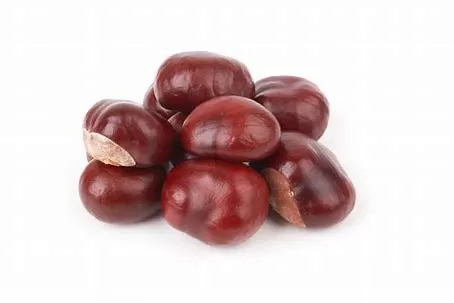- 0086-571-85302990
- sales@greenskybio.com
Does horse chestnut raise blood sugar?
2025-05-28
Horse chestnut (Aesculus hippocastanum) is a tree native to southeastern Europe, whose seeds have been used traditionally to treat various ailments, particularly venous insufficiencies. The active compound in Horse Chestnut Extract is aescin, which has demonstrated efficacy in reducing leg swelling, improving circulation, and alleviating symptoms related to chronic venous disease. However, as interest in natural remedies grows, it is crucial to understand the potential effects of such compounds on blood sugar levels, especially given the rising prevalence of diabetes and insulin resistance.
Understanding Horse Chestnut and Its Properties
Horse chestnut seeds contain several bioactive components, the most notable being aescin. Aescin is a complex blend of saponins responsible for horse chestnut's therapeutic effects, particularly in vascular health. These seeds also include other compounds like flavonoids, tannins, and coumarins. Historically, Horse Chestnut Extracts have been used to treat ailments such as varicose veins, hemorrhoids, and leg ulcers, and they are often lauded for their anti-inflammatory and antioxidant properties.
Furthermore, horse chestnut is commonly seen in topical formulations targeting conditions caused by poor venous circulation. While its main applications are well-documented, its effects on blood sugar levels and metabolic health remain less understood and warrant exploration.
Horse Chestnut and Blood Sugar
The relationship between horse chestnut and blood sugar is a nuanced topic. To date, research specifically examining whether horse chestnut raises blood glucose levels is limited. However, several aspects of its composition merit consideration:
Carbohydrate Content
Raw horse chestnut seeds are rich in starch, consisting largely of carbohydrates. These carbohydrates, if ingested as part of the whole seed or flour, could potentially impact blood sugar levels, similar to other high-starch foods. Therefore, consuming large quantities of horse chestnut-derived products without extracting active medicinal compounds like aescin could contribute to increased blood glucose levels.
Saponin Effects
The saponins in horse chestnut, primarily aescin, have been studied for their systemic effects. However, their direct impact on glucose metabolism hasn't been extensively researched. Saponins are known for their ability to form complexes with cholesterol, potentially impacting lipid metabolism. They could indirectly affect glucose metabolism and insulin sensitivity, though further studies are necessary to draw solid conclusions.
Glycemic Considerations
Due to the starch content, the glycemic properties of horse chestnut in non-processed forms should be acknowledged. In contrast, most medicinal extracts focus on isolating active compounds, reducing carbohydrate content. Those aiming to mitigate the impact on blood glucose levels should opt for standardized extracts with clinical validation, ensuring minimal starch presence.
Research and Safety
Existing research primarily targets horse chestnut's efficacy in treating vascular ailments, with less focus on metabolic effects such as blood sugar elevation. Clinical trials indicate significant improvement in symptoms of venous disease without reporting significant changes in blood glucose levels. It is essential to distinguish the usage of Horse Chestnut Extract from unprocessed seeds, where carbohydrate content differs substantially.
Safety profiles of horse chestnut highlight minimal systemic side effects, though raw seeds are toxic due to high concentrations of esculin, warranting processing and purification before use. Supervised intake of standardized extract should alleviate concerns regarding blood sugar impacts, given the absence of high carbohydrate content in such formulations.
Potential Applications and Considerations
Individuals with pre-diabetes or diabetes should exercise caution and consult healthcare professionals before incorporating horse chestnut supplements into their regimen. The focus should remain on purified extracts specifically targeting venous health, which presumably contain negligible carbohydrates and are unlikely to impact blood glucose adversely.
Incorporating Horse Chestnut Responsibly
For those considering horse chestnut supplements, selecting products backed by clinical studies alongside professional guidance ensures efficacy and safety. Monitoring blood glucose levels, particularly when starting a new supplement, enables early detection of any adverse effects, minimizing risks.
Additionally, integrating horse chestnut with broader lifestyle strategies targeting weight management, balanced diet, and regular exercise offers a comprehensive approach to vascular and metabolic health without jeopardizing glucose control.
Conclusion
While horse chestnut is celebrated primarily for its benefits in treating vascular conditions, its influence on blood sugar levels remains a matter of ongoing exploration. Existing evidence suggests that standardized extracts used for medical purposes should not raise blood sugar significantly, especially when derived from refined, carbohydrate-minimized sources. Nevertheless, individuals with glucose metabolism concerns ought to remain vigilant, prioritizing professional oversight when considering horse chestnut supplements.
Continued research will further elucidate horse chestnut's role in metabolic health, potentially unveiling additional therapeutic applications. As always, the pursuit of health and wellness should blend scientifically validated natural remedies with an informed and mindful approach.
-
What are the benefits of taking Boswellia?
2025-05-28
-
Is horse chestnut FDA approved?
2025-05-28
-
Does horse chestnut affect blood pressure?
2025-05-28
-
Is horse chestnut extract safe?
2025-05-28
-
Is horse chestnut good for your legs?
2025-05-28














